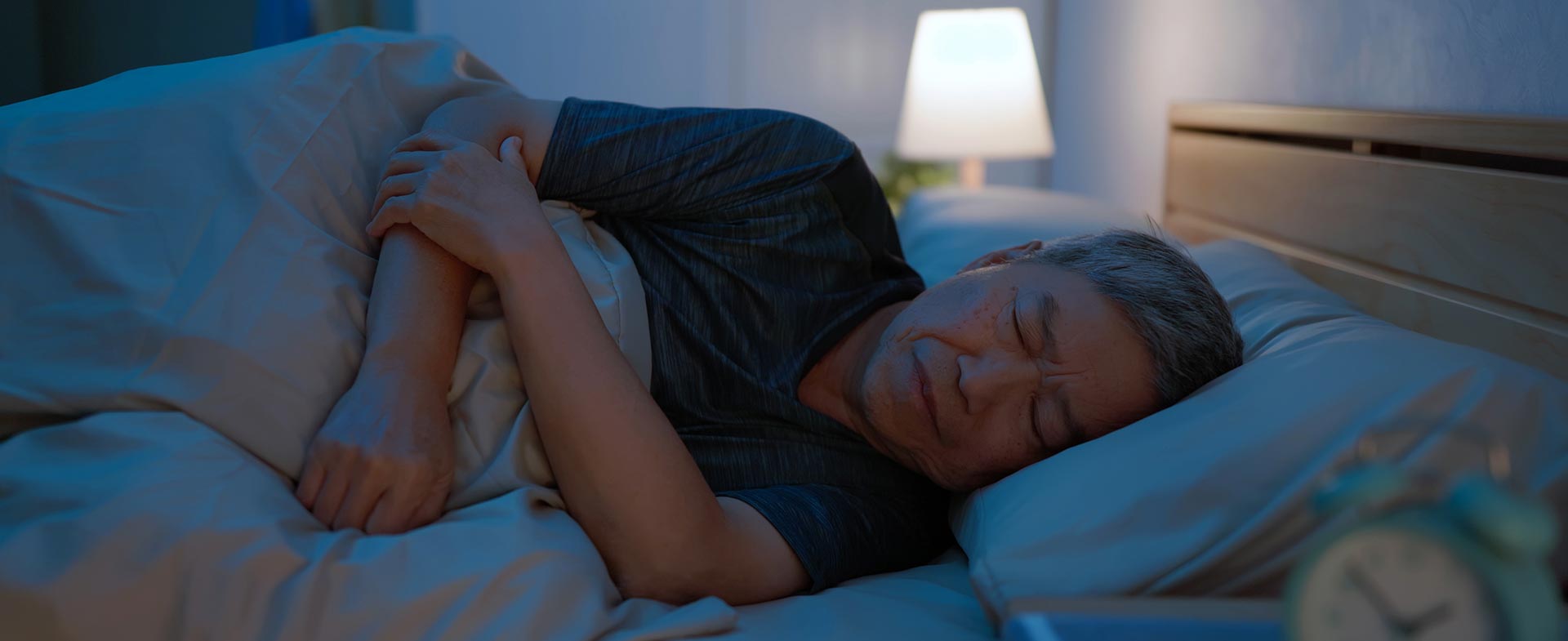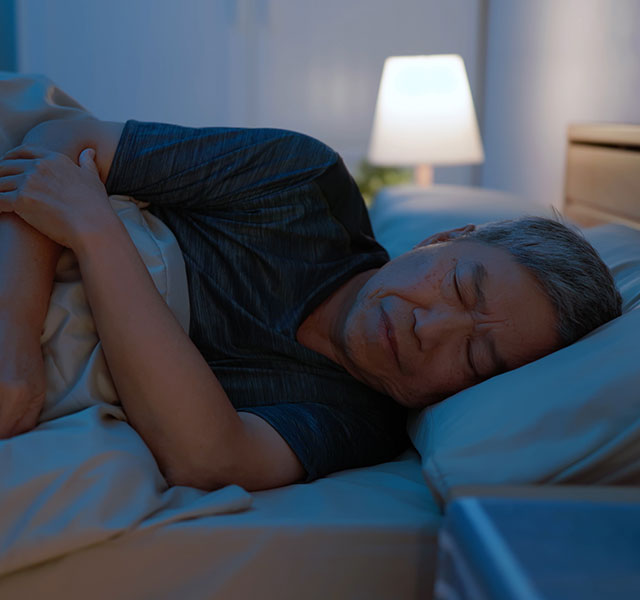Sleep is an important part of life and is closely linked to many of our everyday functions. While a restless night impacts everyone from time to time, long-term sleep deprivation and low-quality sleep can increase your risk for many health conditions including dementia. Here, Henry Ford Health sleep specialist Virginia Skiba, M.D., explains this connection and what you can do to improve on your sleep health.
The Importance Of Sleep As You Age
While you sleep, many processes take place to help the body heal from the day. When you don’t get enough sleep, you start to see everyday functions suffer. A few of these functions directly impacted by your sleep include:
- Mood
- Emotions
- Concentration
- Hunger
- Reaction time
- Memory
According to the American Academy of Sleep Medicine, adults of all ages should get seven to nine hours of sleep each night. However, as you get older, getting enough sleep isn’t always as easy to do.
“Sleep can get more fragmented as you get older, so it is important to take steps to prioritize healthy sleep,” says Dr. Skiba. “For some older adults, your circadian rhythm starts to become disrupted with age. This is why many older people wake up very early each day, need naps in the afternoon and still go to bed early.”
How Sleep Impacts Your Brain
As your heart rate slows and body temperature drops, the body is able to relax while it rebuilds tissue and replenishes your energy from the day. The brain’s lymphatic system, called glymphatic system, plays a large role in this as well. Just like the body’s lymphatic system helps protect the body from infection by moving bacteria and waste out of the body, the brain’s glymphatic system is responsible for something called amyloid clearance.
“Amyloids are proteins that your body is unable to breakdown properly,” says Dr. Skiba. “These proteins can form buildups in the brain that are thought to be related to an increased risk for Alzheimer’s disease and dementia. Getting a good night’s sleep allows the brain’s glymphatic system to break down and get rid of these deposits.”
Unfortunately, that isn’t the only sleep concern that relates to an increased risk for dementia. According to Dr. Skiba, those with chronic sleep deprivation are at an increased risk for cardiovascular disease and diabetes. These two conditions can increase your risk for vascular dementia, a condition that results in dementia due to a lack of blood supply to parts of the brain.
Further, the quality of sleep plays a large role in your dementia risk. For example, having obstructive sleep apnea, which causes you to be deprived of oxygen throughout the night, is a major risk factor for dementia.
It is important to note that poor sleep doesn’t cause dementia. Rather, studies on this topic show that poor sleep can increase your risk or may even be an early sign of dementia. Sleep changes will happen with age, it is just important to be aware when those changes start impacting more than just your sleep.
How To Improve Your Sleep Habits
If you struggle with sleep, pay attention to your sleep patterns. For example, if you are having at least three nights a week of sleep issues for three months, you might consider an expert’s evaluation for a possible case of insomnia. Or, if your partner or family complain about your snoring, you could be dealing with obstructive sleep apnea. If that is the case, you should see your doctor as sleep apnea is a risk factor for many health conditions.
Smart watches and wearable devices are great for tracking sleep, but Dr. Skiba warns that many of these devices underestimate the amount of time your body spends in deep sleep. Be sure to talk to your doctor before jumping to conclusions about your sleep health based on a wearable device.
Most importantly, there are steps that you can take to improve your sleep quality and quantity on your own. Dr. Skiba recommends these tips:
- Set a bedtime. Stick to a regular pattern for going to bed at night and waking up in the morning – even on the weekend.
- Keep mealtimes consistent. Try to eat your meals around the same time each day to help regulate your body. Avoid eating and drinking too close to bedtime, as this can not only cause gastrointestinal discomfort but can actually affect your body’s circadian rhythm.
- Get plenty of exercise. Exercise in the morning and afternoon (but not late evening) has been shown to improve sleep quality.
- Limit alcohol. While an alcoholic beverage might help you fall asleep, it also increases your chances of fragmented sleep – meaning you might wake up more in the night and feel less rested in the morning.
- Time your caffeine intake. Any amount of caffeine after 2 p.m. can disrupt sleep. If you need a cup of coffee to get your going, enjoy it earlier in the day.
- Keep naps short. Dr. Skiba notes that naps are okay to take if you feel you need one. Just be sure that they aren’t so long or late in the day that they impact your sleep at night.
- Dim the lights. Light plays a huge role in circadian rhythm. Keeping the room dark 1-2 hours before you go to bed and while you sleep is just as essential as letting in the light in the morning.
- Practice stimulus control. If you find yourself waking up at night, get out of bed and wind down again in a different space. “You don’t want to get in the habit of training your body that it is okay to lay in bed while awake,” adds Dr. Skiba.

Explore Dementia Care At Henry Ford
“Often times, people want some sort of medication to help them sleep,” says Dr. Skiba. “The reality is, sleep medications may help you fall asleep, but they can actually increase your risk for dementia, so it is not always something we recommend for patients.”
Additionally, Dr. Skiba gets many questions about marijuana and CBD use for sleep. While these products might help you relax and fall asleep, it is important to know that continued research on the topic is finding that regular use can make sleep worse. It is best to consult your doctor before taking anything – medications, supplements or natural remedies – to help you sleep.
Overall, sleep issues are subjective – it all depends on how much they bother you.
“Everyone will have periods of bad nights of sleep at some point in their life,” says Dr. Skiba. “However, you shouldn’t miss out on things or have extreme anxiety associated with not getting enough sleep.”
If you find that your sleep habits are starting to affect your life while you are awake, talk to your doctor.
Reviewed by Dr. Virginia Skiba, a sleep medicine specialist who sees patients at Henry Ford Medical Center - Grosse Pointe, Detroit and Sterling Heights.



